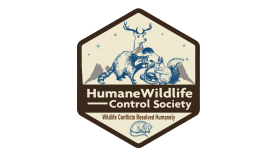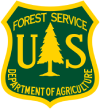Humane Wildlife Control in Baltimore, MD
The Humane Wildlife Control Society recommends non-invasive solutions to resolve human-wildlife conflicts. This includes:
Determining if the issue needs to be addressed at all
Opting for preventative measures first
Opting for wildlife exclusion as opposed to trapping
If trapping is the only way to solve the problem do so humanely
The Humane Wildlife Control Society screens candidates prior to recommendation. Our process requires any company we recommend to meet the following criteria:
Is properly licensed in Maryland for wildlife control
Carries appropriate business licenses and insurance
Complies with all Maryland laws and regulations for wildlife control
Adheres to the humane principles listed above.
In Baltimore, Maryland we recommend Humane Wildlife Removal Baltimore for professional wildlife control services. This is a private company that charges for their services.
Contact Information:
Wildlife Trapping Professionals of Baltimore
443-231-4132
If you have any wildlife issues that can be handled by the state government agency for free, the Maryland Wildlife Commission can help.
State Contact Information: (410) 260-8540
The State Department of Agriculture may also be able to address your wildlife problem for no charge.
USDA Contact Information: (410) 841-5882
Humane Wildlife Control Guide: Baltimore, Maryland Introduction Regulatory Framework Maryland Department of Natural Resources (DNR) regulations governing wildlife management and rehabilitation. Baltimore City Animal Control Ordinances regarding nuisance wildlife and humane handling. Federal laws, including the Migratory Bird Treaty Act and the Endangered Species Act. Violations of these regulations should be reported to the appropriate authorities. Common Wildlife Species and Management Practices Raccoons, Opossums, and Squirrels Secure trash bins and remove outdoor food sources to prevent attraction. Seal entry points to attics, crawl spaces, and chimneys to deter nesting. Use humane eviction techniques such as one-way doors or deterrent lighting. Contact a licensed wildlife rehabilitator for orphaned or injured animals. Rodents (Rats and Mice) Maintain sanitation by eliminating food and water sources. Use humane traps instead of poisons, which can harm non-target species and pets. Seal entry holes and gaps in structures to prevent infestations. Foxes and Coyotes Do not feed or approach wild canines. Secure small pets and livestock to prevent conflicts. Use noise deterrents or motion-activated lights to discourage their presence. Birds (Pigeons, Starlings, and Raptors) Install bird-proofing measures such as netting or spikes on ledges. Avoid disturbing nesting birds protected under federal law. Report injured or distressed birds to a licensed wildlife rehabilitator. Snakes (Venomous and Non-Venomous) Learn to identify local snake species to distinguish between harmless and venomous types. Avoid killing snakes; they help control rodent populations. If necessary, contact a professional removal service for venomous species. Ethical and Legal Wildlife Removal Relocation of wildlife should only be done by licensed professionals to prevent harm to the animals and environment. Killing or trapping animals without proper authorization is illegal in many cases and can cause ecological imbalance. Residents should work with wildlife control experts who use non-lethal, humane removal techniques. Coexisting with Wildlife Secure food sources, including pet food, bird feeders, and garbage. Use fencing and exclusion methods to prevent conflicts. Educate the community about responsible wildlife interaction and humane deterrents. Emergency Contacts Maryland Department of Natural Resources (DNR): (877) 463-6497 Baltimore City Animal Control: (311 or 410-396-4694) Local Wildlife Rehabilitators: Contact for injured or orphaned wildlife assistance Poison Control (for animal poisoning cases): (800) 222-1222
Baltimore, Maryland, is home to a variety of wildlife species that frequently interact with urban and suburban communities. Humane wildlife control is essential to maintaining ecological balance, protecting public health, and ensuring ethical treatment of animals. This guide provides best practices for residents, businesses, and local authorities to manage wildlife responsibly.
Wildlife control in Baltimore is regulated by:







